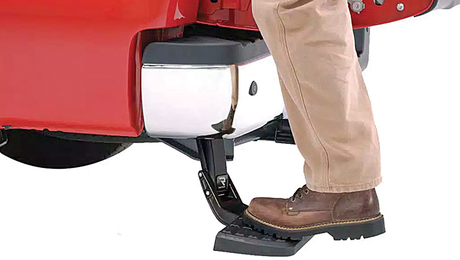I want to apply a hand troweled plaster finish to my new shower. Am I crazy or could it really be done? Basically we’re talking about a typical tile shower construction method, minus the tile and with a finish coat of plaster/stucco/take your pick. Sealer? Or should I stick with the tried and true materials?
Thanks for your input.















Replies
Check into swimming pool plaster.
I was gonna say stick to tried and true....
till I read that! Good idea.......if the tub/wall detail could be worked out.
JeffBuck Construction Pittsburgh,PA
Fine Carpentery.....While U Waite
>if the tub/wall detail could be worked out.
That's where I was stuck for a quick answer. It's gotta be stiff...I used swimming pool plaster on a shotcreted hot tub, and it's held through two years outside without a crack or leak. I've speced a plastered shower as part of a design, and the walls will be curved and shotcreted. Didn't mention that at first be/c it's not the most commonly used residential building method, though if the equipment and expertise are on site, it's quite efficient.
Great suggestion! I wouldn't have considered it, but it makes sense. Thanks.
Plaster is very porous so you will need to apply a healthy coat of sealer. This in turn may create a "texture" or finish film. This film will be needed to stand up to the abuse of cleaning soap scum off the walls.
Shellac is a common plaster sealer but not too durable. Wax is anothe,r but even less durable, plus it will bond too well with the soap scum. McKlosey's Marine Poly is great but I don't know how well it will bond with the plaster. Try it out and let us know.
Just curious, why plaster? I've seen "stucco" done in showers. Looked good. You can tint it any color you want and you know it's gonna hold up...paper, lathe, scratch, brown, and finish coat, done deal.
Stucco is another material/process that I was considering; but was trying to figure out the detail - a typical stucco detail allows trapped moisture to weep out the bottom of the assembly.
As for why? Now that I have opportunity to work on MY home, for a change, I'm pulling the classic contractor move and reinventing the wheel. Because I know that I can build a normal shower, but why not mix it up a bit and get creative? After all is said and done, I get to live with the result of this experiment.
Thanks.
Ha! I like the way you think. Unfortunately, my wife doesn't like my line of thinking :-) But, our 3 year old home only has a couple of things left to finish, so at least I'm making progress.
And, as a matter of fact, the master shower is one of them. I've been holding out on what do finish it out with. I thought to use the same tile that's in the rest of the bath, but stucco intrigued me and now this pool plaster ideas has crept into my head...what to do, what to do...
No reason why not.
Use all of the recommentations the TCA provides for moisture control. I'd consider using bituthane over a suitable substrate (like maybe marine plywood)under the lathe. Alternately, maybe you could use a cement backer-board and a bonding adhesive.
If you were to use diamond lathe (expanded metal lathe), an acrylic fortified Portland cement-based scratch coat,let it cure well, mix the brown coat a litle on the rich side with 1/2 Anti-Hydro and 1/2 water, and cure it carefully, I don't see why you'd have a problem. Anti-Hydro is amazing.
I think this will give you a very tough, durable stucco. If all else fails, hit it once more with synthetic stucco like STO Flexyl. That stuff is generally waterproof and darn near bomb proof.
Everything I build gets covered with stucco, it certainly isn't formulated, mixed, or applied as carefully as I'm describing here, and it works fine. It doesn't get drenched on a daily basis, but hey, it's your house. If it doesn't work, tear it out and try again.
Good luck and please keep us posted. I might try this myself.
DRC
Thanks Dave, I'm feeling more and more confident with this approach the more that I think about it. As you put it, 'it is my house and if it doesn't work, I know that I can demo and redo the whole install with a "normal" method -- if needed.
Rob
For sure, Rob.
I'm actually glad you posted this. Now I know I'm not the only one. You wouldn't believe some of the experiments I try on my house that I would never dream of doing on a customers house. Good thing my family is patient.
Hey, innovation has to happen somehow, right?
Besides, doesn't everyone want their gardening done with a track hoe?
DRC